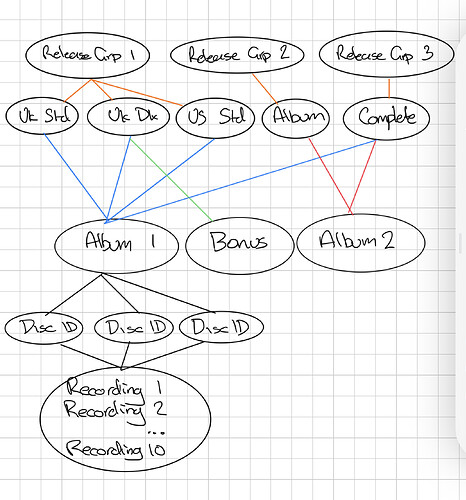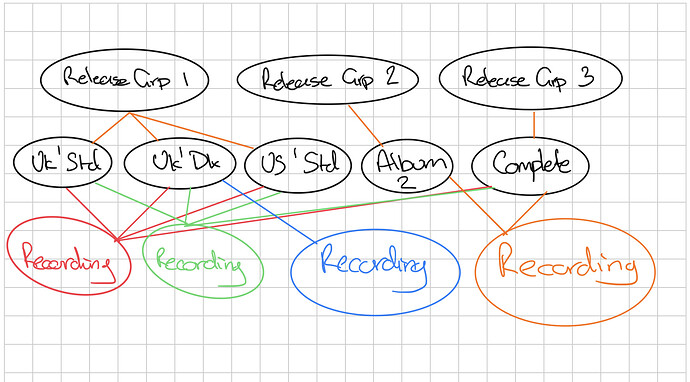It struct me today, that with MusicBrainz containing entries for audiobooks and similar, there is duplication between MusicBrainz and BookBrains especially in two areas.
First off: artists - specifically should / would it be possible, for BookBrainz to share the same database of artists as MusicBrainz, albeit that an artist in MusicBrainz is an author in BookBrainz?
If such was to happen, the schema would perhaps need to be expanded to indicate further what kind of artist/author the entity is. We do already have Person / Group / Character, but (particularly with respect to a person) there needs (IMO) to be further categorisations. People do use the ETI / Disambiguation for this, but a more formal set of characteristics to describe a person would be (IMO) useful.
For example: is the person a music artist (which perhaps is split further between someone performing solo and someone who performs only as part of a group / orchestra / choir); a visual artist (photographer, illustrator, etc.); a composer; an author; or someone working on technical aspects. Of course some people fit multiple of these categories.
Secondly: works. In MusicBrainz this typically refers to a musical work, but we already have audio dramas, plays, poems and prose which will match BookBrainz categories.
I know that there is already the ability to link between at least artists in MusicBrainz and authors in BookBrainz, but is this simply duplicating data?
I’m not sure how possible or even desirable this merging of the two projects is. Just something I was thinking while adding some entries in MusicBrainz for audio recordings which could need duplicating in BookBrainz. My particular interest was Doctor Who where a television serial has been novelised, and then that novelisation released as a audiobook. Obviously (in an ideal world) the audiobook is an entry in MusicBrainz, but links directly to a book in BookBrainz, but in turn that book links back to a “work” of the original TV episode / serial.


